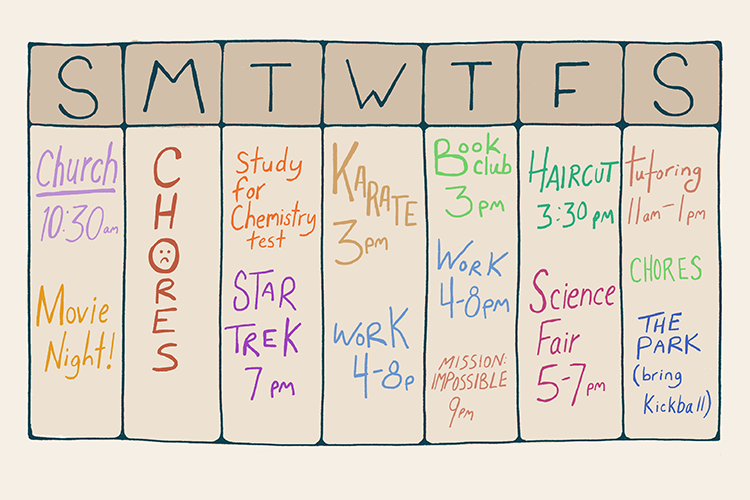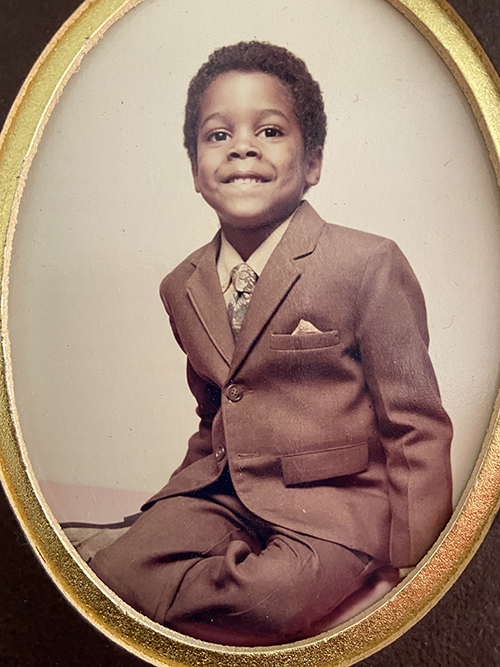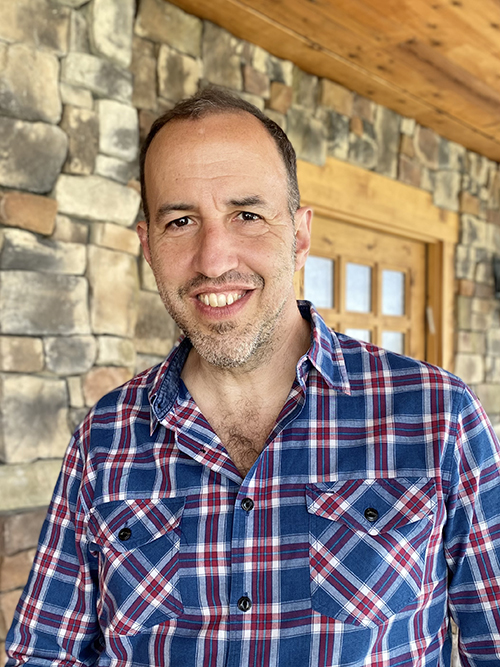How the seven-day week made us who we are
The week has been used as a timekeeping unit to organize society for 2,000 years. But only for the past 200 years in the U.S. has it had a grip on our daily lives
February 18, 2022
Follow Berkeley Voices, a Berkeley News podcast about the people and research that makes UC Berkeley the world-changing place that it is. Review us on Apple Podcasts.
See all Berkeley Voices episodes.
As a kid growing up in New York City, Roqua Montez was interested in everything — dinosaurs, science, music and dance, martial arts, comics — and his calendar filled up fast. Now, as the executive director of communications and media relations in UC Berkeley’s Office of Communications and Public Affairs, he still has a lot to keep track of. To manage his activities and responsibilities, Roqua has relied on something that we all rely on: the seven-day week.
The week has been used as a timekeeping unit and calendar device to organize society for about 2,000 years, says David Henkin, a professor of history at Berkeley and author of the 2021 book, The Week: A History of the Unnatural Rhythms that Made Us Who We Are. But it’s only for the past 200 years in the U.S. that the week has had a grip on our daily lives.

An imaginative recreation of Roqua Montez’s calendar from his childhood. (Neil Freese/UC Berkeley)
Read a transcript of Berkeley Voices episode “How the seven-day week made us who we are.”
Intro: This is Berkeley Voices. I’m Anne Brice.
[Music: “Selena Leica” by Blue Dot Sessions]
Narration: Growing up in New York City, Roqua Montez remembers his family’s weekly schedule very well:

From left: Roqua’s mom, Beverly; Roqua; his oldest sister, Tina; his dad, Roqua Jr.; and his middle sister, Nicole. A couple years later, his brother, Tico, was born, followed by his sister, Mikoyan. Growing up in a family of five kids with one bathroom and a father in the military, Roqua knows the importance of keeping a schedule. (Courtesy of Roqua Montez)
Roqua Montez: Dinner was at 6 p.m. If we had any studies that we hadn’t completed, that was to start at 6:30, 7 o’clock. And then, from 7 to 8 p.m., we had that one hour of television. And then it was promptly to bed at 8 o’clock.
So, time, at least during what we call the regular workweek, was of utmost importance. I’m from a family of five and we shared one bathroom, so we had to coordinate schedules in the morning, right? Everybody had to get up, get showers, get dressed, have breakfast and then out the door for school. So, we were constantly on a schedule.
Narration: As a kid, Roqua was interested in everything — dinosaurs, science, music and dance, martial arts, comics — and his calendar filled up fast. Karate was on Wednesdays and Saturdays. He was an avid reader and joined every book club he could find. He tutored younger students in English and history. And he worked a part-time job in reception at a barbershop in town Tuesday through Friday.
Roqua Montez: Now, during the weekend, that was a different matter entirely. Outside of church, which started at 10:30 a.m., we pretty much had that time to ourselves. However, we were allowed to sort of go as far and wide as we wanted to, but we had to be inside before the streetlights came on.

Roqua at age 7 in his favorite brown suit. As a kid, he loved Spider-Man and Superman, and even tried to convince his mom to call him Clark Kent. (Courtesy of Roqua Montez)
Narration: He spent a lot of time at a nearby park with his siblings and friends playing games — kickball, softball, tag — until dark. Sometimes he’d show off his karate moves to the neighborhood kids, who were all into Bruce Lee and were definitely impressed.
And then on Sundays, his mom, dad, three sisters and brother would all go to church.
Roqua Montez: We started at 10:30 a.m. Probably didn’t get out of there much before 2 o’clock. And if there was a special program to be had, or a visiting pastor or choir, you came back in the afternoon for another three hours. So, it really was a daylong affair. But again, very grounding, very beneficial. I didn’t appreciate all of that at the time, but I certainly do now.
Narration: So, Roqua had a lot going on every week. And now, as executive director of communications and media relations in UC Berkeley’s Office of Communications and Public Affairs, he still does.
[Music fades]

Roqua is the executive director of communications and media relations in UC Berkeley’s Office of Communications and Public Affairs. (Courtesy of Roqua Montez)
He leads a team of 10 and is responsible for setting the editorial direction and vision for the unit to define, articulate and effectively broadcast the vision, goals and successes of the university. He’s also responsible for creating a high-level strategy for communicating the university’s excellence and distinction while also helping to navigate and respond to unanticipated events.
[Music: “Crumbtown” by Blue Dot Sessions]
In other words, he’s still busy.
Narration: To manage all of his activities and responsibilities throughout his life, Roqua has relied on something that we all rely on: the seven-day week.
[Music fades]
David Henkin is a professor of history at Berkeley and author of the 2021 book, The Week: A History of the Unnatural Rhythms that Made Us Who We Are. Henkin says the week has been used as a timekeeping unit and calendar device to organize society for about 2,000 years, since the first century CE.
David Henkin: And everyone says to me, “Oh, that’s really recent.” I don’t know. To me, since I think of the week as a technology, in some ways an industrial technology, I think, “Wow, that’s really old,” right? It’s really only in the last 150 years that it has become a global calendar unit. Many parts of the world really didn’t have it until a few hundred years ago. And some parts didn’t have it until maybe 150 years ago. And it’s, I think, only really in the last 200 years in America that it has come to have the kind of grip it has over our daily lives.
Narration: With urbanization, beginning in the early 1800s, Henkin says, massive numbers of Americans began to have practical and important reasons to distinguish between days of the week.

David Henkin is a professor of history at Berkeley and author of the 2021 book, The Week: A History of the Unnatural Rhythms that Made Us Who We Are. (Courtesy of David Henkin)
David Henkin: This turned out to be a complicated story. Lots of things constructed the modern week: train schedules and mail schedules and voluntary association schedules and school schedules, whereas we usually think the schedule that shapes the modern week is simply the schedule of work and rest.
But I suspected from the start, and confirmed early on, that the week did all kinds of other things for 19th century Americans — and for us today — that are not simply about work and rest and are not simply about the sacred and the profane. It has always done many things.
But the one new thing that, I think, it really began doing in the early 1800s was providing a schedule to coordinate activities, and especially to coordinate activities with strangers.
Narration: People began to have lives where they might go to a singing group on Fridays or volunteer on Tuesdays. Baseball teams would share fields, playing games on different days of the week.
David Henkin: So, it becomes a massive logistical device that’s used to sequester activities or to coordinate activities or to regulate the frequency of activities. And then, once you have that, all the participants and all the spectators in all those activities begin to have lives that are even further attached to the week.
Narration: In researching the role the week played in people’s lives in 19th century America, Henkin read thousands of documents over about 13 years. There were two different types of documents he looked at: public documents that he could use to reconstruct what town or city life was like, including newspapers, court records, city directories, ads for the theater, things like that. And then, there were the documents that showed how people personally kept track of their time, like diaries, letters and memoirs.
David Henkin: The diary is the single document type I used most, and it’s probably the most important to me. It’s also the most unwieldy. So many people kept diaries. A diary entry is a story people tell about their lives that they set in time. Even if it’s a very simple story, like, “milk the cows” or “visit my sister.” So, those became very valuable documents to me figuring out not only what people did, but how they mentally mapped their lives.

A diary entry of a young clerk that appears in The Week. The diary was the single document type that Henkin used most in his research for the book. (Courtesy of David Henkin)
Narration: Henkin says that diary keeping became a mass activity in the 19th century, but it was much more popular among certain groups.
David Henkin: I’d say it was more popular among young people than old people. It was especially popular among people who aspired to middle class status. Keeping a diary was one of many sort of symbols of middle class respectability. So, it was especially common among young, white, Protestant, native-born clerks, for example.
Narration: But, he says, it’s hard to say for sure who was keeping diaries and who wasn’t because of preservation bias.
Although, for his book, Henkin cast a wide net, examining diaries from across the country, he could only look at diaries that had been preserved — maybe because they contained details about a time of general interest, like the Civil War or the Gold Rush, or maybe because they were written by a person with more privilege and status in society.
So, while it does give us a view of who was writing in diaries at the time, it doesn’t give us a full picture.
[Music: “Ranch Hand” by Blue Dot Sessions]
In the early days of the pandemic, Roqua was feeling out of sorts, along with the rest of us. Every morning, he’d get dressed and would try to recreate his work office at home.
Roqua Montez: And I began to feel like, this is ridiculous. I’m fully dressed, really top to bottom, shoes and everything for about a month and then realized, maybe we don’t have to do this. We can relax a little bit. I’ll still appear, at least from what folks see, to be professionally dressed. So yes, that took some adjusting.
Narration: Our weekly routines were suddenly disrupted. Days kind of started to blend together. Henkin says this makes sense because we use the seven-day week to shape our memories and our sense of passing time.
David Henkin: One way to think about it is: In the world that you and I live in, Anne, if we think it’s a Wednesday and discover in the middle of the day that it’s a Thursday, that’s pretty disorienting. It’s not only that it’s usually inconvenient because it will cause us to miss an appointment or do the wrong thing; it’s that we feel suddenly kind of cut loose from time or from other people or even from our own memories.
And it’s probably the thing that I became most persuaded of over the course of my research, is that the modern week really is intimately connected with human memory — with the frailty of human memory, but also the power of human memory to sort of anchor us in time.
Narration: The reason that it can be easy to lose track of the week, says Henkin, is that it’s not attached to anything. It’s not like we can look outside and see that it’s Tuesday, like we can see that it’s nighttime. The week depends on us keeping a record.
David Henkin: I like to point out that it’s artificial to get people to recognize that it’s a technology that does things. I don’t think the fact that the week is unnatural makes it more dispensable or more pernicious or more useful, even. I think it’s just an interesting thing that reminds us very clearly that societies make decisions and make rules and reinforce habits, and those things are as powerful in our lives as the heavens or the limitations of our bodies.
[Music fades up, then down]
Narration: For Roqua, new weekly routines are now in place and he’s adjusted to a different normal, like we’ve all had to. And although the week still plays a big role in his life, like it does for almost everyone in the world, he says there will be a time in the next few years when his schedule won’t matter anymore — when he simply won’t care what day of the week it is.
[Music: “Blue Jay” by Blue Dot Sessions]
Roqua Montez: I’ve got a few years left before retirement, with any luck. Fingers crossed. That is indeed the time where I will fling schedules behind me and every day will be an open canvas.
I have every expectation that I’m going to retire to Belize, on the water. My favorite place: warmth and water. And that’s where I will be and live out the remainder of my days. And that means no schedule, right? That means get up, see the beautiful sunshine, roaring waters and I will do… hell, we’ll see what’s supposed to happen each day.
Outro: I’m Anne Brice, and this is Berkeley Voices, a Berkeley News podcast from UC Berkeley’s Office of Communications and Public Affairs. The Illustration for this episode is by Neil Freese.
You can follow us on Spotify, Apple Podcasts, Acast or wherever you listen. If you like what we do, follow us and leave us a rating and review. New episodes come out every other Friday. You can find all of our podcast episodes with transcripts and photos on Berkeley News at news.berkeley.edu/podcasts.
[Music fades]
Listen to other Berkeley Voices episodes: